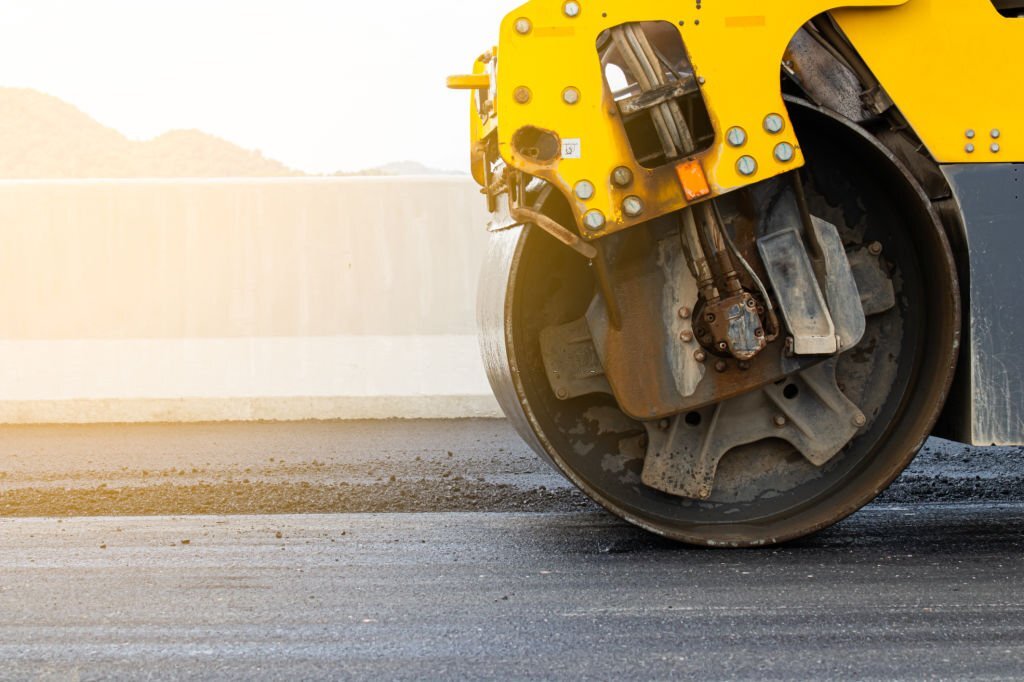
Gravel is a crucial component in road construction, providing a stable foundation for road surfaces. To ensure the proper placement and compaction of gravel, specific machines are utilized. These specialized equipment streamline the process, enhancing the efficiency and durability of road construction projects. By understanding the machines designed for laying and compacting gravel, construction professionals can optimize operations and create resilient road surfaces.
This comprehensive article explores the specific machines used for laying and compacting gravel in road construction. We will delve into the functionalities and benefits of motor graders, road rollers, and soil stabilizers. Understanding these machines enables construction professionals to make informed decisions, enhance productivity, and achieve high-quality road surfaces.
I. Motor Graders :
- Gravel Spreading: Motor graders are commonly used for spreading and leveling gravel during road construction. Equipped with a blade or moldboard, motor graders distribute the gravel evenly across the road surface. They ensure uniform thickness and precise placement, creating a solid base for subsequent layers and facilitating proper compaction.
- Gravel Grading: Motor graders are essential for grading the gravel layer to achieve the desired surface profile. They can adjust the blade angle and position to shape the gravel layer accurately. Graders ensure a smooth and even surface, eliminating irregularities and optimizing compaction results.
II. Road Rollers:
- Initial Compaction: Road rollers, also known as compactors, are crucial machines for compacting gravel in road construction. They provide initial compaction to the loose gravel layer, increasing its density and stability. Road rollers come in various types, including smooth drum rollers and pneumatic tire rollers, each offering specific compaction benefits.
- Final Compaction: After the initial compaction, road rollers are used for final compaction to achieve the desired density and stability of the gravel layer. The repeated passes of the roller over the gravel surface enhance compaction, reducing voids and ensuring a solid base for the road. Smooth drum rollers and vibratory rollers are commonly employed for final compaction.
III. Soil Stabilizers :
- Mixing and Stabilization: Soil stabilizers are specialized machines designed to improve the properties of subgrade or existing soil by mixing it with additives, such as cement, lime, or foamed asphalt. By blending the soil and additives, stabilizers enhance its strength, durability, and load-bearing capacity. This process ensures a solid foundation for the gravel layer and overall road construction.
- Gravel Pulverization: Some soil stabilizers also feature gravel pulverization capabilities. They can break down larger gravel particles and mix them with the soil, creating a homogenous mixture. This process helps in achieving consistent compaction and improved bonding between the gravel and the stabilized soil, enhancing the overall stability of the road surface.
IV. Benefits of Specialized Machines for Gravel Laying and Compaction:
- Efficient Operations: Specialized machines for gravel laying and compaction significantly improve efficiency in road construction projects. They streamline the process by automating and optimizing various tasks, reducing labor requirements and project timelines. The use of these machines ensures consistent and precise gravel placement and compaction, enhancing overall productivity.
- Enhanced Quality and Durability: The use of specialized equipment ensures high-quality gravel placement and compaction. Motor graders achieve precise spreading and grading, creating a uniform gravel layer with optimal thickness. Road rollers provide efficient compaction, reducing voids and increasing density. Soil stabilizers enhance the stability and load-bearing capacity of the subgrade, contributing to durable and long-lasting road surfaces.
- Optimal Road Performance: By utilizing specific machines for gravel laying and compaction, road surfaces achieve optimal performance. The uniform gravel layer and proper compaction result in a stable and smooth road surface that can withstand heavy traffic loads, resist erosion, and minimize maintenance requirements. Well-laid and compacted gravel promotes safe and comfortable driving conditions for road users.
Conclusion :
Specialized machines are instrumental in road construction for the laying and compaction of gravel. Motor graders ensure precise spreading and grading, while road rollers provide initial and final compaction. Soil stabilizers enhance the stability and load-bearing capacity of the subgrade. By employing these machines, construction professionals can achieve efficient operations, high-quality road surfaces, and optimal road performance.
Understanding the functionalities and benefits of these specialized machines enables construction professionals to make informed decisions and optimize the gravel laying and compaction processes. With proper gravel placement and compaction, road surfaces become durable, stable, and capable of withstanding the demands of heavy traffic. By utilizing the right equipment, construction professionals can contribute to safe, reliable, and long-lasting road infrastructure that benefits communities and promotes smooth transportation networks.

